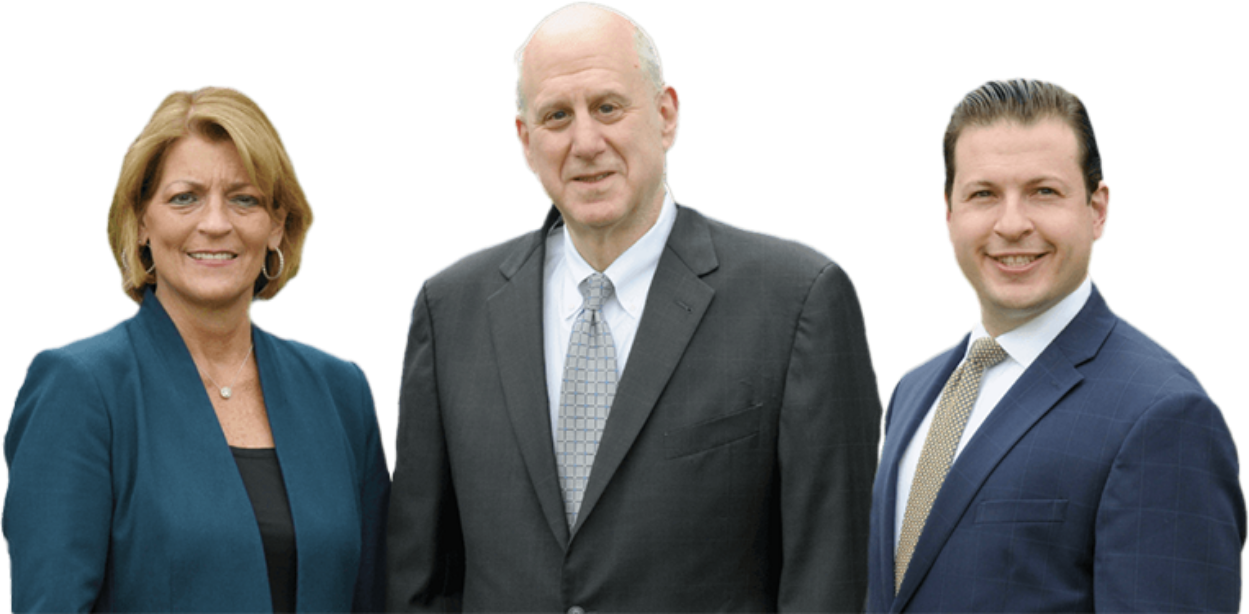Sayreville, NJ Bankruptcy Lawyers
The term “bankruptcy” is generally not one that is looked upon highly. Many people associate it with financial failure and losing everything that you have. However, that is a far cry from what bankruptcy is in reality. People can end up in dire financial straits for many reasons that are not always in their control. Even extremely savvy business owners can end up needing to file for bankruptcy through no fault of their own.
When you are assessing your financial options, a bankruptcy attorney can provide invaluable assistance. They can inform you of what you need to be aware of before, during, and after bankruptcy proceedings so that they work in your favor.
If you are thinking about the pros and cons of bankruptcy, call our offices at (609) 755-3115 and speak with one of the bankruptcy lawyers from Young, Marr, Mallis & Associates.
What is Bankruptcy?
Bankruptcy is a way for people who cannot pay debts to get a clean slate and move on with their lives. The idea is to have the court work out a payment plan between the debtor – who is filing for bankruptcy – and their creditors – who want to get paid.
Bankruptcy is not designed to leave people destitute. The objective is to pay creditors efficiently and give the debtor a fresh start after bankruptcy proceedings are over. Naturally, that cannot happen if proceedings are incredibly hostile to the debtor. Courts are there to facilitate the process and make sure everything goes smoothly.
A key feature of bankruptcy is something called an “automatic stay.” This puts an immediate hold on all debt collection efforts against you. Your properties cannot be foreclosed on, you cannot get collection calls from anyone, and you cannot have anything repossessed without the court’s approval. The idea is to give you some breathing room so you and your creditors can work something out.
The way that bankruptcy works is through “liquidating” assets to pay of creditors. Liquidation is a word for turning assets into cash. Money is said to be “liquid” because it can be easily transferred and turned into other things. The idea is to get as much cash as possible to pay off creditors.
An alternative way that bankruptcy works is through a process called “reorganization.” When compared to liquidation, reorganization is more well-organized. Under the reorganization, the debtor can keep some assets from getting sold off to pay creditors.
Whether your assets are going to be liquidated or reorganized will depend on which chapter of the bankruptcy code you file under. Our bankruptcy lawyers can work with you through either kind of bankruptcy process.
Chapter 7 Bankruptcy in Sayreville, NJ
Chapter 7 bankruptcy is debatably the simplest form of bankruptcy to understand. Chapter 7 bankruptcy involves the court liquidating as many assets as possible to pay creditors quickly. On your end, there are no extra forms or plans you need to submit to the court after filing in order for Chapter 7 bankruptcy to work. All you need to produce is a list of assets and other things you have so the court knows what they can sell to pay off debts.
Because this form of bankruptcy is resolved very quickly and there are few limits on what can be liquidated, it is only an option for people with little to no assets. In fact, there is a means test to determine whether you have too many assets to file under Chapter 7. This is because, in bankruptcy, if all available assets are sold off and there are still creditors that need to be paid, those creditors get nothing because you are out of assets and have a clean slate after bankruptcy is over.
Chapter 13 Bankruptcy in Sayreville, NJ
Chapter 13 of the Bankruptcy Code is different than Chapter 7. Notably, you are able to earmark certain assets as “off limits” from liquidation. While Chapter 7 bankruptcy is best suited to individuals with few assets, Chapter 13 is better for people who have assets they want to keep beyond items traditionally off-limits, like homes and family cars.
The downside of Chapter 13 bankruptcy, when compared to Chapter 7, is that it can take longer to wrap up than Chapter 7. It is not unusual to be in bankruptcy for years under Chapter 13. You also have to submit paperwork and forms detailing some parts of the process. Of course, our lawyers can help you with those filings.
When to Consider Bankruptcy in Sayreville, NJ
The decision to file for bankruptcy is a very important one. It should not be made recklessly. For that reason, you need to seriously assess our situation with the help of legal counsel before coming to a final decision. Although bankruptcy is not as dire as it may be perceived, it can still have consequences. For example, it may be harder to take out loans during bankruptcy, and your credit score may suffer temporarily.
One core benefit of filing for bankruptcy is that it instantly puts a halt on all debt collection efforts through something called an “automatic stay.” This is a court order that seriously limits anything creditors are able to do. Instead of trying to get you to pay up however they want, they have to adhere to a plan created by the court.
If you can effectively manage your current debt, then there is really no reason to file for bankruptcy. You may also be able to work with your creditors to restructure your agreements without filing for bankruptcy. You need to discuss your situation with an attorney before deciding to file for bankruptcy under any chapter.
Speak to Our Sayreville, NJ Bankruptcy Lawyers Today About Your Case
For a totally confidential, free analysis of your options, call the team of bankruptcy lawyers with Young, Marr, Mallis & Associates at (609) 755-3115.



























